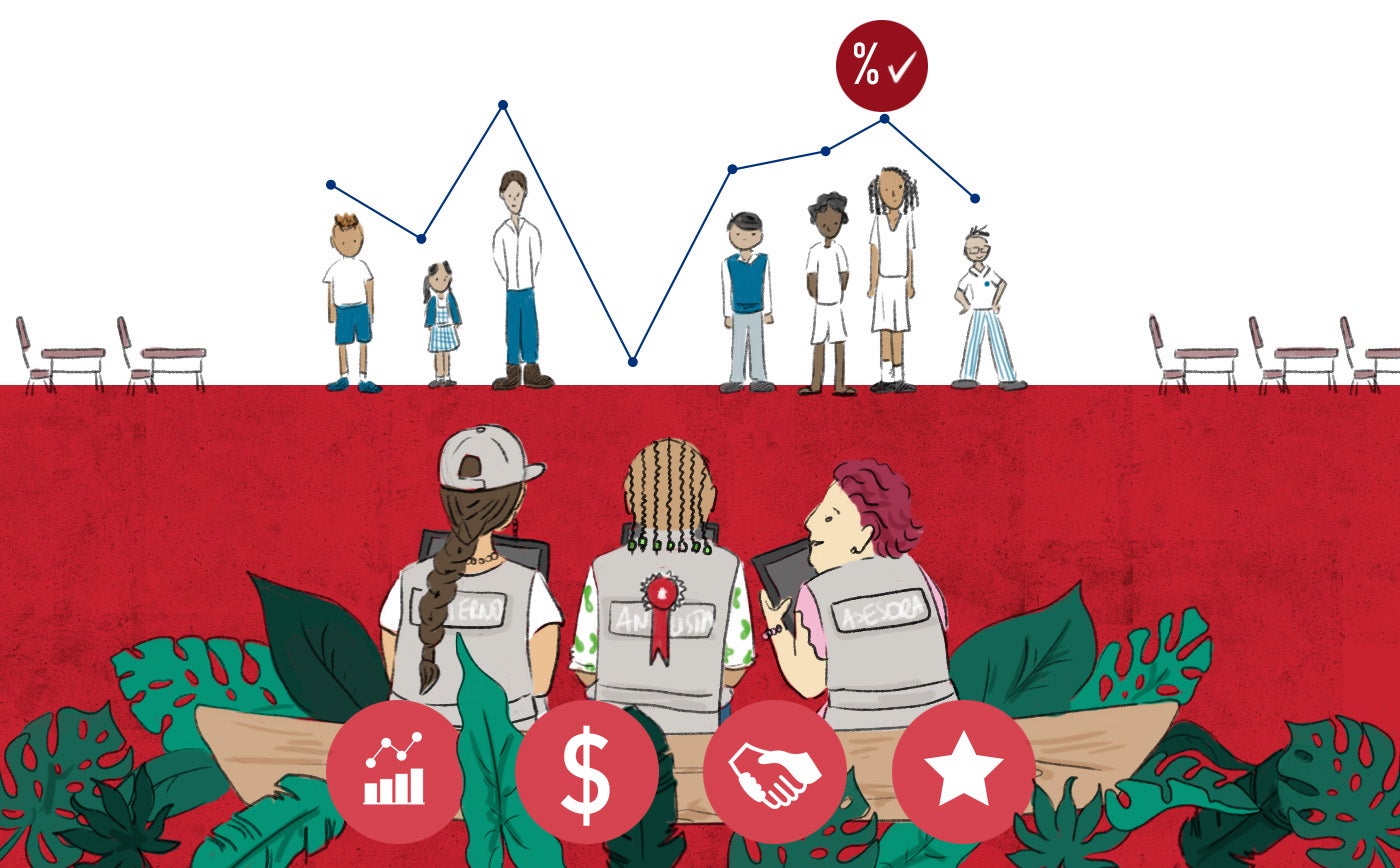How can we create a government culture which produces evidence-based public policy?
That is the central question to the latest report by J-PAL (The Abdul Latif Jameel Poverty Action Lab) “Creating a culture of evidence: lessons from J-PAL partnerships with Latin America.”
J-PAL is a think tank co-funded by Esther Duflo and Abhijit Banerjee, two of the 2019 Nobel Prize of Economics. Based out of MIT’s economics department and with 10 years of experience in partnering with Latin American governments, J-PAL’s Latin American and Caribbean branch (J-PAL LAC) attempted to classify the main lessons it has learned from creating and implementing evidence-based public policies.
Based on information gathered from 40 interviews with 15 government agencies throughout the region, the report presents best practices to advocacy organizations and governments about public sector use of evidence. These recommendations seek to overcome barriers to using (administrative and monitoring) data as well as evidence-literature insights on impact evaluation.
The obstacles were financial, political uncertainty and gaps in existing literature. For sure, developing any culture goes beyond following a list of good practices. But being aware of the challenges listed by J-PAL before adopting these types of initiatives can make a positive contribution to the use of evidence when developing public policy.
Among the good practices geared towards advocacy is the mapping of senior government officials who want to and are able to carry the agenda forward within their organization (these people are known as champions).
In addition, to develop new partnerships it is important to take into account the public partner’s institutional capacity, the availability of data and systems, established incentives and processes, with a view to offering products which are in line with the partner’s capacity and potential.
The report highlights how the approach to each public agency is key. Their interest will vary depending on whether the agency is implementing (seeking to pilot programs for a future scale-up for instance) or financing (wanting access to evidence for decision making purposes). Also, it is important to be agile on building a partnership once a government demonstrates interest.
Finally, looking at the sustainability of evidence use, the report recommends expanding partnerships within the organization beyond the champions, offering intermediary results of evaluations (or quick wins) in order to foster commitment and the formalization of partnerships to ensure institutionality.
With regards to government entities and agencies, the report makes the following suggestions:
- Allocate resources to evidence use and make it somebody’s job to apply evidence in policy design. The government should allocate resources for program and policy evaluation through its own funds or donations. It should also hire personnel or assign a workforce to data and evidence use in evaluations and planning new policies.
- Create spaces where evidence use is encouraged and rewarded. Often day-to-day responsibilities don’t allow policymakers the time to develop new policy design or processes. Allocating physical spaces and specific schedules can allow for experience sharing and developing proposals that include data and evidence.
- Invest in administrative data collection, management and inter-agency data sharing. Access to data is key. Collecting and developing administrative data systems that allow public officials to regularly use data and evidence in program management and implementation can also go a long way.
- Collaborating with evidence-to-policy organizations and researchers. Organizations and researchers that have expertise in generating, synthesizing, and applying data and evidence can be valuable partners in governments’ efforts to use data and evidence more systematically.
These practices are important, but they aren’t much use if the government isn’t committed to evaluating, as well as developing or reviewing its policies by using data and evidence. It is also worth remembering that evidence on impacts and experimental evaluations are tools, not a blanket solution for all the issues surrounding public policy development. Some policies will still be informed and justified by information and data that has nothing to do with the empirical analysis of its implementation.
This blog post has outlined the main best practices for advocacy and other public organizations seeking to develop a culture of designing policies based on data and evidence. The report also includes many case studies, and describes firsthand experiences of how policy developers deal with this challenge on a daily basis. It is worth checking out!
To learn more about how the IDB Group supports evidence-based policies and projects in Latin America and the Caribbean, download the 2019 Development Effectiveness Overview, the institution’s flagship publication on results and impact.


Leave a Reply